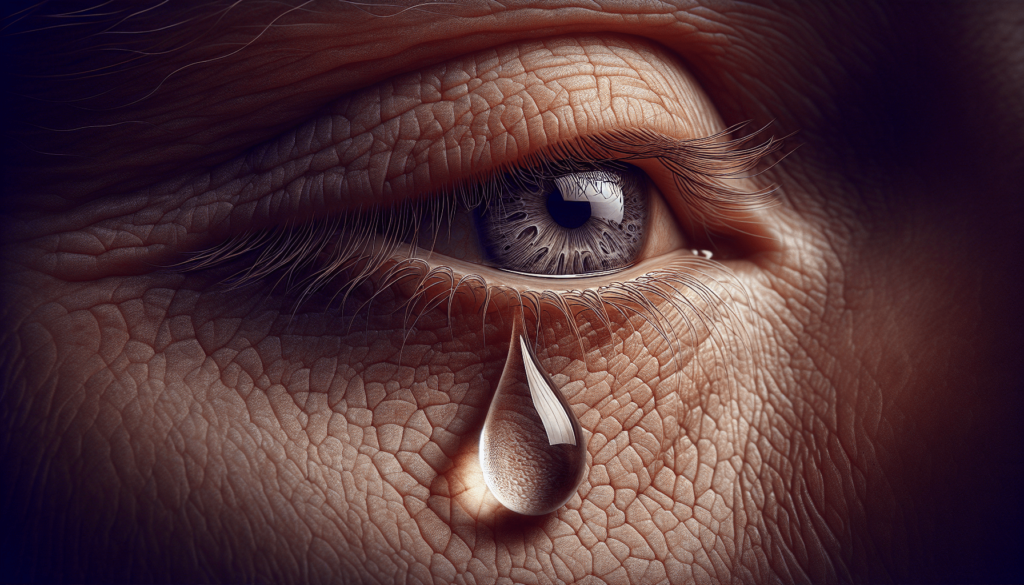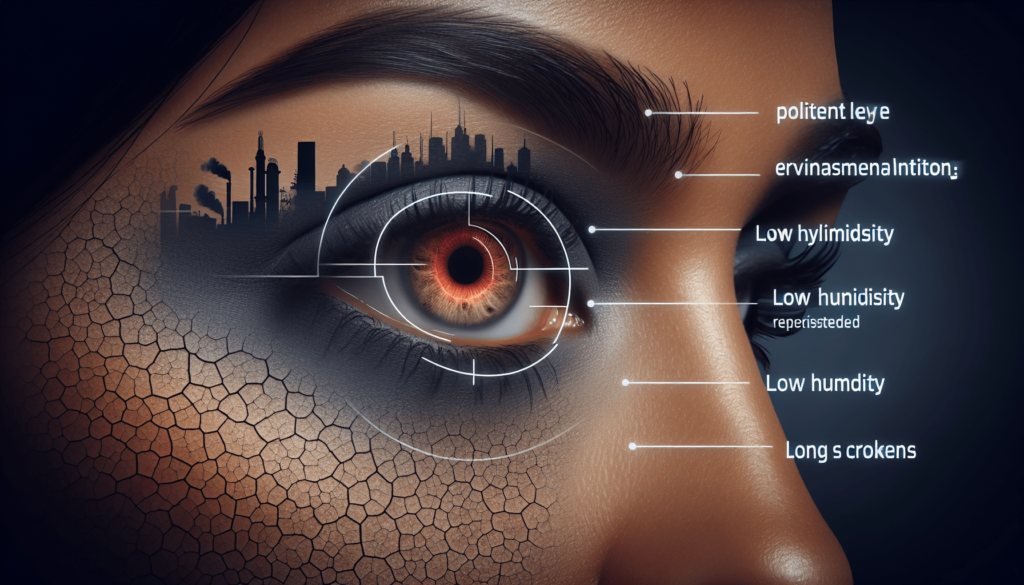Welcome to an informative article on the effects of staring at screens on your eye health. Many of us spend hours each day looking at computer, phone, and television screens, but have you ever stopped to think about how this may be impacting your eyes? We will delve into the factors that can contribute to dry eye syndrome, a common condition that can result from prolonged screen time. Stay tuned to learn how you can protect your eyes and reduce the discomfort associated with digital eye strain.
How Does Staring At Screens Contribute To Dry Eye?
Have you ever found yourself in front of a computer or phone screen for hours on end, only to experience discomfort in your eyes shortly after? You might be experiencing symptoms of dry eye syndrome, a common condition that affects many individuals who spend significant amounts of time looking at screens. In this article, we will explore how staring at screens can contribute to dry eye and what you can do to alleviate the symptoms.
What is Dry Eye Syndrome?
Dry eye syndrome is a condition that occurs when your eyes do not produce enough tears or when the tears evaporate too quickly. Tears are an essential component of eye health, as they provide lubrication, reduce the risk of infection, and keep your eyes clear and comfortable. When you have dry eye syndrome, you may experience symptoms such as:
- Dryness
- Irritation
- Redness
- Sensitivity to light
- Blurry vision
- Discomfort
If left untreated, dry eye syndrome can lead to more serious complications, such as corneal damage and vision problems.
What Causes Dry Eye Syndrome?
There are various factors that can contribute to the development of dry eye syndrome, including:
- Age: As we age, our tear production decreases, making us more susceptible to dry eye.
- Gender: Women are more likely to develop dry eye due to hormonal changes, particularly during pregnancy and menopause.
- Medical conditions: Conditions such as diabetes, rheumatoid arthritis, and thyroid disorders can increase the risk of dry eye.
- Medications: Certain medications, such as antihistamines, decongestants, and antidepressants, can reduce tear production.
- Environment: Dry or windy climates, as well as exposure to smoke and air conditioning, can worsen dry eye symptoms.
How Does Staring At Screens Affect Your Eyes?
In today’s digital age, many of us spend a significant amount of time staring at screens, whether it’s for work, entertainment, or communication. This prolonged screen time can have a negative impact on your eyes and contribute to the development of dry eye syndrome. Here’s how staring at screens affects your eyes:
-
Blinking: When you stare at a screen, you tend to blink less frequently, which can lead to dryness and irritation. Blinking is essential for spreading tears across the surface of your eyes and keeping them lubricated.
-
Blue light: Screens emit blue light, which can penetrate deep into the eye and cause damage to the retinal cells. This can lead to digital eye strain, a condition characterized by dryness, redness, and discomfort.
-
Screen distance: The distance between your eyes and the screen can also affect your eye health. Staring at a screen from a close distance can strain your eyes and contribute to dryness.
Tips for Relieving Dry Eye Symptoms
If you’re experiencing dry eye symptoms due to staring at screens, there are several things you can do to alleviate the discomfort and protect your eye health. Here are some tips for relieving dry eye symptoms:
-
Follow the 20-20-20 rule: Every 20 minutes, take a 20-second break and look at something 20 feet away. This can help reduce eye strain and promote blink frequency.
-
Use artificial tears: Over-the-counter artificial tears can provide temporary relief for dryness and irritation. Make sure to choose preservative-free eye drops for long-term use.
-
Adjust screen settings: Reduce the brightness and glare of your screen to minimize eye strain. You can also use a blue light filter to protect your eyes from harmful blue light.
-
Take frequent breaks: Give your eyes regular breaks from staring at screens by incorporating the Pomodoro technique or other work-rest intervals into your daily routine.
-
Stay hydrated: Drinking plenty of water can help maintain tear production and prevent dehydration, which can worsen dry eye symptoms.
When to See a Doctor
If you continue to experience persistent dry eye symptoms despite trying these tips, it’s important to consult an eye care professional for a comprehensive evaluation. They can assess your eye health, identify any underlying causes of dry eye, and recommend appropriate treatment options, such as prescription eye drops or punctal plugs.
Remember, taking care of your eye health is essential for maintaining clear vision and overall well-being. By being mindful of your screen time and implementing healthy habits, you can protect your eyes from the negative effects of staring at screens and prevent the development of dry eye syndrome. So, take breaks, blink frequently, and give your eyes the care they deserve!



